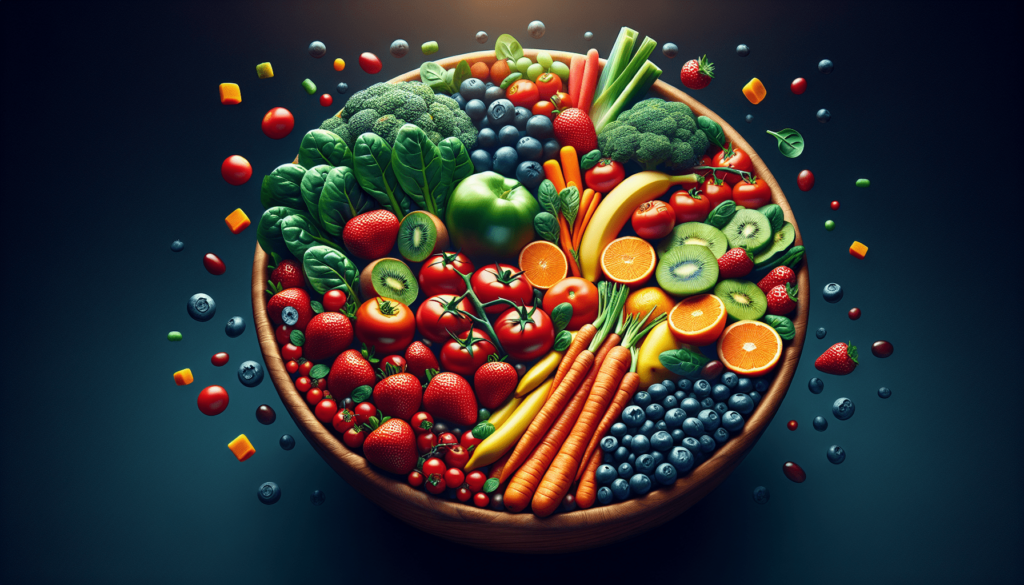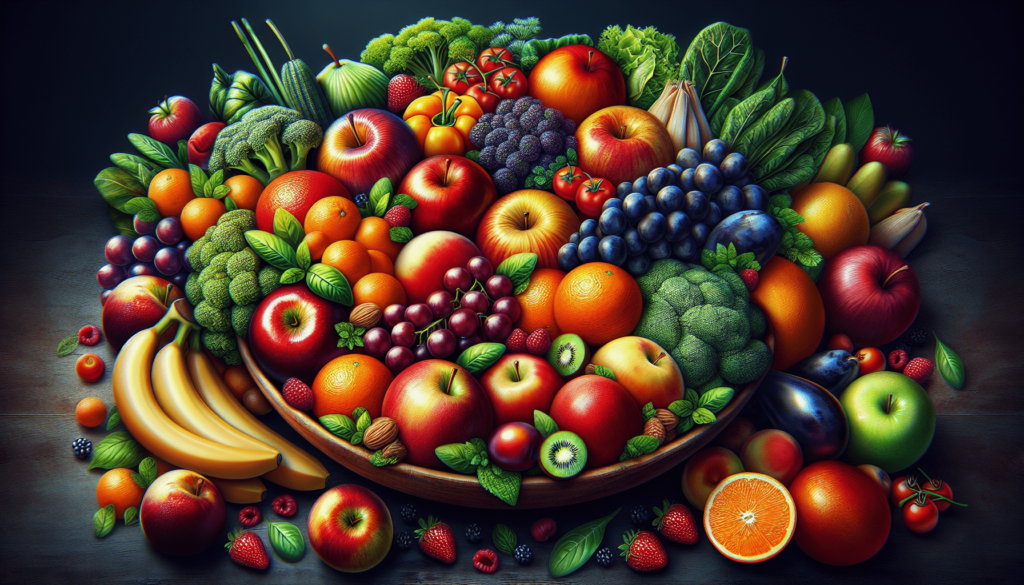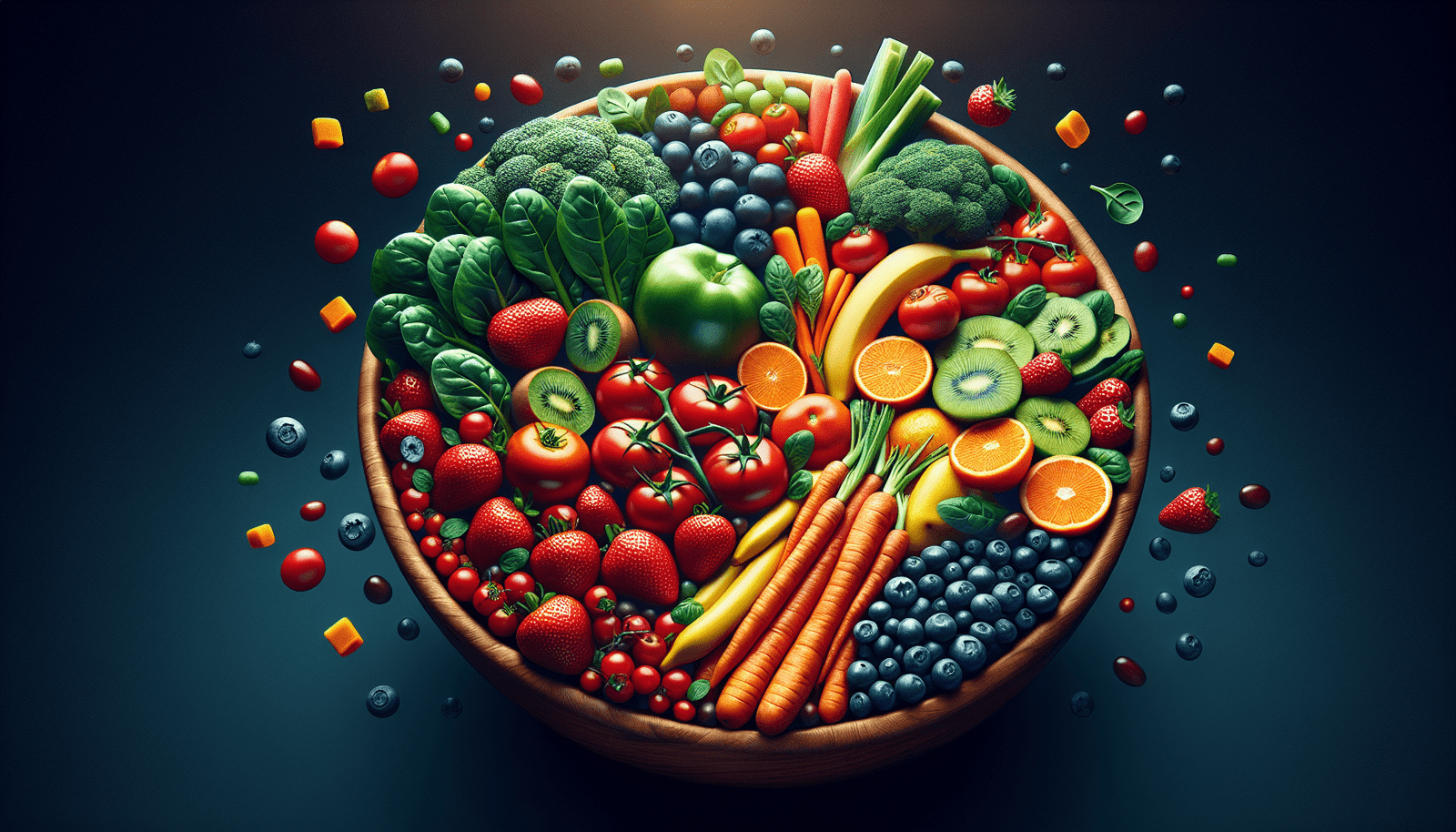Are you struggling to improve your diet?
It can be challenging to maintain a healthy diet, especially when you have a busy schedule or limited time to prepare meals. But fear not, there are simple ways to make healthier choices without putting in a lot of effort. In this article, we will share some tips for zero-effort nutrition, so you can improve your diet with minimal stress.
Understanding the basics of nutrition
Before we dive into specific tips, it’s essential to have a basic understanding of nutrition. Knowing what your body needs to function properly can help you make better food choices. A balanced diet should include a variety of foods from all the food groups: fruits, vegetables, whole grains, lean proteins, and healthy fats.

Make smart choices when grocery shopping
One of the easiest ways to improve your diet is to make better choices when grocery shopping. By stocking up on healthy ingredients, you can ensure that you have nutritious options on hand when it’s time to prepare a meal. Here are some tips to help you make smarter choices at the store:
| Grocery Shopping Tips |
|---|
| Stick to the perimeter of the store where fresh produce, lean meats, and dairy are typically located. |
| Read food labels to check for added sugars, unhealthy fats, and other undesirable ingredients. |
| Choose whole foods over processed, packaged items whenever possible. |
| Opt for organic produce and grass-fed meats when your budget allows. |
| Plan your meals ahead of time and make a shopping list to avoid impulse buys. |
Making small changes to your grocery shopping habits can have a big impact on your overall diet.
Incorporate more fruits and vegetables into your meals
Fruits and vegetables are essential sources of vitamins, minerals, and fiber that are crucial for overall health. But incorporating more of these foods into your diet doesn’t have to be difficult. Here are some simple ways to sneak in more fruits and veggies:
| Fruit and Vegetable Tips |
|---|
| Add berries or sliced banana to your morning oatmeal or yogurt. |
| Snack on carrot sticks, bell pepper strips, or cucumber slices with hummus. |
| Blend leafy greens like spinach or kale into your morning smoothie. |
| Choose salads or vegetable soups as a side dish with your meals. |
| Bake or roast vegetables like sweet potatoes, Brussels sprouts, or cauliflower for a tasty side dish. |
By finding creative ways to incorporate fruits and vegetables into your meals, you can boost your nutrient intake without a lot of extra effort.
Make simple swaps for healthier options
Another way to improve your diet with minimal effort is to make simple swaps for healthier options. By choosing healthier alternatives to your favorite foods, you can still enjoy the flavors you love while nourishing your body. Here are some easy swaps to consider:
| Healthy Swaps |
|---|
| Swap white rice for quinoa or brown rice for added fiber and nutrients. |
| Choose whole-grain pasta instead of refined white pasta for more nutritional value. |
| Opt for lean proteins like chicken, fish, or tofu instead of fatty cuts of meat. |
| Use Greek yogurt in place of sour cream or mayonnaise in recipes for a protein boost. |
| Replace sugary drinks with water, herbal tea, or sparkling water for a healthier beverage choice. |
Making small changes to your everyday eating habits can add up to significant improvements in your overall diet.
Focus on balance and moderation
While it’s essential to make healthy choices most of the time, it’s also important to enjoy indulgences in moderation. Depriving yourself of your favorite treats can lead to feelings of restriction and deprivation, which can ultimately backfire. Instead, focus on balance and moderation by incorporating a variety of foods into your diet and allowing yourself to enjoy treats in moderation.
| Balance and Moderation Tips |
|---|
| Allow yourself to enjoy your favorite treats in moderation without guilt. |
| Focus on portion control by listening to your hunger cues and stopping when you’re satisfied. |
| Include a variety of foods in your diet to ensure you’re getting a range of nutrients. |
| Pay attention to how certain foods make you feel and adjust your intake accordingly. |
| Practice mindful eating by slowing down and savoring your meals without distractions. |
By focusing on balance and moderation, you can enjoy a variety of foods while still prioritizing your health and well-being.
Stay hydrated and limit sugary beverages
Staying hydrated is crucial for overall health, but many people overlook the importance of drinking enough water throughout the day. Sugary beverages like soda, juice, and energy drinks can contribute to excess calories and added sugars in your diet, which can have negative effects on your health. Here are some tips for staying hydrated and limiting sugary drinks:
| Hydration Tips |
|---|
| Carry a reusable water bottle with you throughout the day to remind yourself to drink more water. |
| Flavor your water with fresh fruit, herbs, or cucumber slices for a refreshing twist. |
| Limit sugary drinks like soda, juice, and energy drinks to occasional treats rather than everyday beverages. |
| Choose unsweetened beverages like herbal tea, black coffee, or sparkling water as alternatives to sugary drinks. |
| Aim to drink at least eight cups (64 ounces) of water per day to stay hydrated and support your overall health. |
By prioritizing hydration and choosing healthier beverage options, you can support your overall health and well-being with minimal effort.
Prepare meals in advance for busy days
If you have a hectic schedule or limited time to cook during the week, preparing meals in advance can be a lifesaver. By batch cooking and meal prepping, you can have healthy meals ready to go when you need them, saving you time and reducing the temptation to grab unhealthy fast food. Here are some tips for preparing meals in advance:
| Meal Prep Tips |
|---|
| Choose one day a week to dedicate to meal prep and batch cooking. |
| Cook large batches of grains, proteins, and vegetables that you can mix and match throughout the week. |
| Store prepped meals in individual containers for easy grab-and-go lunches or dinners. |
| Use slow cookers, instant pots, or sheet pan dinners for quick and easy meal prep options. |
| Get creative with meal prep by experimenting with new recipes and flavor combinations to keep things interesting. |
By preparing meals in advance, you can save time and stress during busy weeks while still enjoying healthy, homemade meals.
Conclusion
Improving your diet doesn’t have to be an overwhelming or time-consuming process. By making small changes to your everyday eating habits and prioritizing your health and well-being, you can make significant strides towards a healthier diet without a lot of effort. Remember to focus on balance and moderation, stay hydrated, and choose nutrient-dense foods whenever possible. With these zero-effort nutrition tips, you can nourish your body, boost your energy levels, and feel your best every day.


